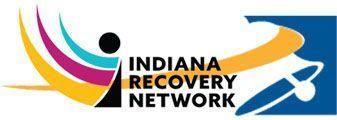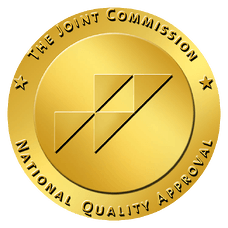
CONTACT __|__(765) 780-7689

Complete the pre-screen form below to initiate the admission process. Our admissions team will contact you shortly.
Drug and Alcohol Addiction Therapies
Wabash Recovery recognizes that behavioral therapy plays a crucial role in the treatment of substance use disorders (SUDs). This therapeutic approach not only aids individuals in gaining a deeper insight into their personal relationship with substances but also equips them with the tools necessary to navigate their recovery journey. Through therapy, individuals acquire strategies to resist the temptation of substance use and learn healthier ways to manage stressors in their lives.
On this page, we will explore the numerous benefits of SUD therapy, outline commonly employed addiction therapy techniques, and describe various therapy formats, including individual and group sessions, all designed to support sustained recovery and personal growth.
Why is Therapy Used During Addiction Treatment?
Behavioral therapies play a crucial role in addiction treatment by assisting individuals in addressing and transforming their thoughts and behaviors related to substance use. Given that addiction affects every aspect of a person's life, drug and alcohol therapy enables individuals to gain insights into how substance use has influenced their relationships, well-being, and other vital areas. It also equips them with essential skills to manage triggers and cope with stressors. Furthermore, these therapies can enhance the effectiveness of medications that may be prescribed as part of the overall treatment plan. Depending on individual needs and personalized treatment plans, one or more types of evidence-based behavioral therapies may be implemented.
Cognitive-behavioral Therapy
Cognitive Behavioral Therapy (CBT) is a comprehensive term that encompasses various evidence-based treatments focusing on the interplay between an individual’s behaviors, thoughts, and emotions. The CBT framework is anchored in three fundamental principles:
- Psychological issues stem from distorted or maladaptive thinking patterns.
- Psychological problems arise from ingrained patterns of maladaptive behaviors.
- Individuals can learn effective coping strategies to alleviate certain symptoms and implement positive changes in their lives.
CBT for addiction therapy aids individuals in tackling the root causes, thought processes, and behaviors that may have led to substance use. Additionally, CBT equips individuals with essential problem-solving skills to manage cravings and utilize healthy coping mechanisms when faced with stressors or triggers.
Dialectical Behavior Therapy (DBT)
Dialectical behavior therapy (DBT) is a specialized type of cognitive behavioral therapy initially designed to assist individuals facing chronic suicidal thoughts. Today, it is applied to a broader spectrum of mental health issues, emotional regulation challenges, and substance use disorders. As an evidence-based method, DBT emphasizes the balance between two contrasting principles—acceptance and change—enabling individuals to diminish emotional dysregulation, cultivate acceptance in the face of difficult situations, and strive towards creating a fulfilling life.
Types of 12-Step Programs
Alternative and Complementary Therapies
Alternative and complementary therapies refer to approaches that fall outside the realm of traditional psychotherapy, yet can enhance conventional treatment, offer support, and reinforce therapeutic progress. Examples of alternative therapies include:
- Mindfulness: This technique enables individuals to cultivate a present-moment awareness, allowing them to observe their thoughts, emotions, and physical sensations without judgment. This heightened awareness empowers individuals to identify cravings and triggers, and by viewing them objectively, they can learn to detach from and manage these urges instead of resorting to substances.
- Yoga: Yoga is a holistic practice that emphasizes the mind-body connection, incorporating elements of postures, breathing exercises, and meditation. This practice can help individuals attune to their bodies, manage stress, alleviate tension, and enhance their overall sense of well-being.
- Art therapy: This encompasses a variety of activities such as drawing, painting, and sculpting, facilitating self-expression. For example, an individual may draw to release feelings of anxiety or create a sculpture to convey an experience that is difficult to articulate.
- Music therapy: Music therapy may involve engaging in musical games, songwriting, lyric analysis, and drumming. These activities can promote relaxation, alleviate stress, and offer a means of expression for experiences that might otherwise be challenging to verbalize.
12-Step Groups
12-Step groups, including organizations like Alcoholics Anonymous (AA) and Narcotics Anonymous (NA), comprise individuals committed to overcoming their addictions. These meetings serve as a platform for people in recovery to collaboratively engage in their sobriety journeys, fostering solidarity and mutual support. The 12 steps encompass a series of guiding principles and actions that participants navigate as integral parts of their recovery process. Such groups offer a nurturing community that can be an essential element in the path to healing.
Find a Addiction Therapy Near Indianapolis, IN
If you're facing challenges with drug or alcohol misuse or addiction, it's time to seek the help you truly deserve. Contact our inpatient rehab facility near Indianapolis to connect with one of our skilled and compassionate rehab admissions navigators. They are available to address any questions you might have, including inquiries about using insurance to cover rehab costs and the various levels of addiction treatment we provide.
Call us today at
(765) 780-7689 and embark on your journey toward recovery right now.
You aren't alone. You deserve to get help.
Wabash Recovery is located in Kokomo, Indiana, which is easily accessible from Indianapolis.
Take your next step toward recovery:
✔ learn more about our addiction treatment programs.
✔ see how popular insurance providers such as Aetna or BlueCross offer coverage for rehab.
✔ view photos of our facility.
Contact Us At
765-780-7689
admissions@restoredlifecoc.com
1236 N Wabash Ave, Kokomo, IN 46901

